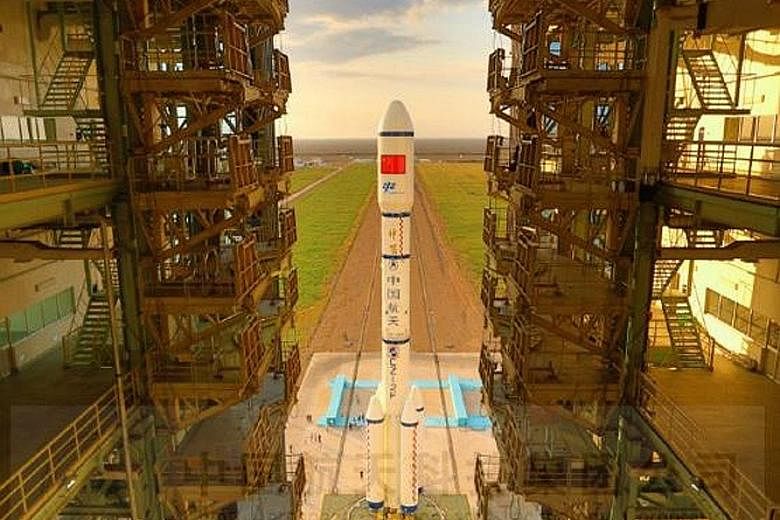BEIJING • China will launch its second experimental space laboratory today and another manned space mission next month, part of a broader plan to have a permanent manned space station in service around 2022.
It will launch the Tiangong 2 just after 10pm today, a space programme spokesman said at a news conference telecast live from the remote launch site in Jiuquan, in the Gobi desert.
The Shenzhou 11 spacecraft, which will carry two astronauts and will dock with Tiangong 2, will be launched some time next month, Ms Wu Ping said yesterday. The astronauts expect to remain on Tiangong 2 for about a month, she added.
The launch will add a high-tech sheen to China's week-long National Day celebrations starting on Oct 1, as well as the shorter Mid-Autumn Festival holiday this week that coincides with the full moon.
Advancing China's space programme is a priority for Beijing, with President Xi Jinping calling for the country to establish itself as a space power.
Apart from its civilian ambitions, Beijing has also tested anti-satellite missiles.
China insists its space programme is for peaceful purposes, but the US Defence Department has highlighted its increasing space capabilities, saying it was pursuing activities aimed at preventing adversaries from using space- based assets in a crisis.
In a manned space mission in 2013, three Chinese astronauts spent 15 days in orbit and docked with an experimental space laboratory, the Tiangong 1, or "Heavenly Palace".
China has been moving to develop its space programme for military, commercial and scientific purposes, but is still playing catch-up with the established space powers - the US and Russia. China's Jade Rabbit moon rover landed on the moon in late 2013 to great national fanfare, but soon began experiencing severe technical difficulties.
The Jade Rabbit and the Chang'e 3 probe that carried it there marked the first "soft landing" on the moon since 1976. Both the US and the Soviet Union had accomplished the feat earlier.
REUTERS

